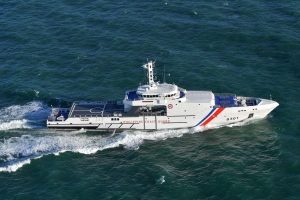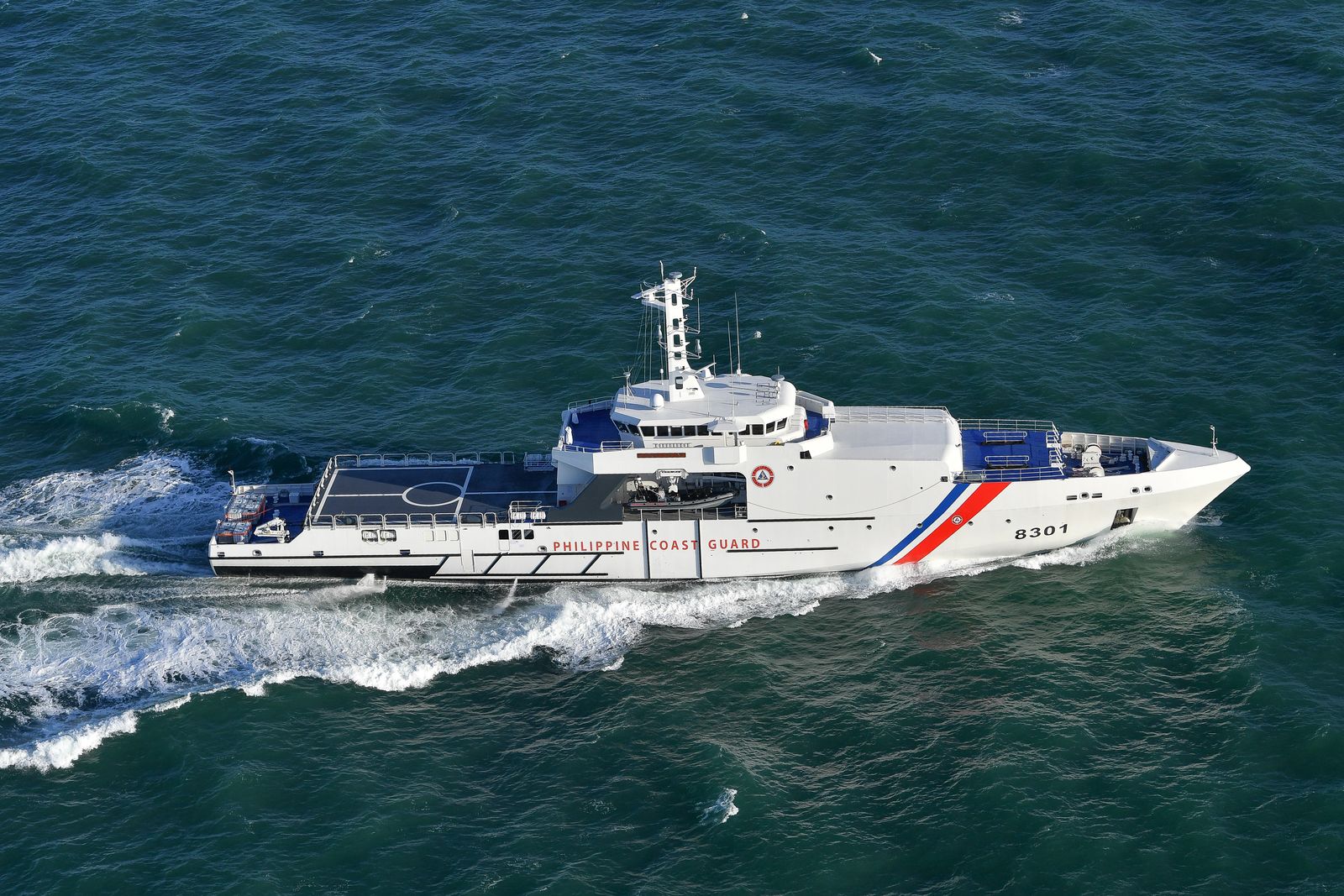Today, on Emergency Services Day, we pause to recognize the tireless efforts of those who dedicate their lives to protecting and caring for others. Among the many crucial services that safeguard our communities, coastguards stand out as the sentinels of the sea, ensuring the safety of millions of seafarers, coastal residents, and maritime travellers around the world.
The Coastguard: Guardians of the Seas
Coastguards are a specialized branch of emergency services, responsible for maritime search and rescue (SAR), pollution control, law enforcement, and ensuring the safety of all who navigate the waters. Whether it’s a recreational boat stranded at sea, a large vessel in distress, or a coastal community facing natural disasters, coastguards respond swiftly to all maritime emergencies, often under extreme conditions. Coastguard duties extend beyond just rescues; they are also responsible for preventing accidents and ensuring compliance with international maritime laws. In many countries, they serve as the first line of defense in combating illegal activities such as smuggling, human trafficking, and illegal fishing.

Maritime Search and Rescue: A Lifeline at Sea
– Maritime Search and Rescue (SAR)
One of the most well-known roles of the coastguard is in maritime search and rescue (SAR) operations. The sea can be unforgiving, with unpredictable weather, treacherous waters, and vast distances creating frequent risks for those on the water. The coastguard is tasked with responding to distress signals from vessels of all sizes, including everything from small recreational boats to massive commercial ships. These distress situations may include engine failure, medical emergencies, accidents, or vessels caught in storms. When a distress call is received, the coastguard initiates an immediate response, coordinating efforts across multiple assets. They deploy rescue boats, helicopters, and aircraft equipped with advanced search equipment, such as radar, thermal imaging, and satellite communication systems. Modern technology allows coastguards to locate individuals at sea more efficiently, even in poor visibility or during night operations. These SAR missions often require navigating treacherous weather conditions, rough seas, and remote locations far from shore. In addition to responding to emergencies, coastguards often provide safety education to mariners and enforce regulations related to life-saving equipment. Their preventive work reduces the occurrence of accidents, promoting safer navigation and better preparation for emergencies among seafarers.
– Pollution Control and Environmental Protection
Coastguards are also on the frontline of environmental protection, particularly in preventing and responding to pollution incidents at sea. Pollution from ships, whether due to accidental spills, illegal dumping, or natural disasters, can cause extensive damage to marine ecosystems and coastal communities. One of the most significant threats is oil spills, which can spread over vast areas, contaminating water, shorelines, and marine life. In the event of a spill, coastguards lead the response efforts, working in conjunction with environmental agencies and other stakeholders to contain and clean up the affected area. Their rapid response can mitigate the severity of environmental disasters, helping to protect wildlife and minimize economic damage to coastal industries such as fishing and tourism.
Coastguards also enforce strict regulations on waste disposal at sea, ensuring that vessels comply with international environmental laws like the International Convention for the Prevention of Pollution from Ships (MARPOL). Regular inspections and monitoring of ships ensure that pollution prevention measures are followed, making the coastguard a key player in the global effort to preserve the health of the oceans.
– Law Enforcement on the High Seas
Another critical function of the coastguard is maritime law enforcement, which includes upholding national and international laws in territorial waters and exclusive economic zones (EEZs). Coastguards have the authority to board and inspect vessels suspected of illegal activities, such as smuggling, human trafficking, drug trafficking, illegal fishing, and piracy. In many cases, coastguards are the first line of defense against organized crime at sea. Illegal fishing, for example, is a significant problem that threatens the sustainability of marine ecosystems and undermines the livelihoods of coastal communities. The coastguard conducts patrols to ensure that fishing vessels comply with quotas and legal restrictions, helping to preserve fish stocks for future generations.
Similarly, human trafficking and smuggling operations often use maritime routes to transport people and illicit goods. Coastguards intercept these illegal operations, often rescuing vulnerable individuals from life-threatening conditions. They collaborate with international law enforcement agencies, such as INTERPOL, to dismantle trafficking networks and bring perpetrators to justice. In regions prone to piracy, coastguards play a vital role in securing shipping lanes, ensuring that commercial vessels can operate safely. Their presence deters criminal activity and ensures the free flow of goods across the oceans, which is essential for the global economy.
– Coastal Community Protection
Coastguards are also responsible for safeguarding coastal communities from natural and man-made disasters. In regions prone to hurricanes, tsunamis, or cyclones, the coastguard’s role becomes critical in early warning systems, evacuations, and disaster response. They often lead evacuation efforts, guiding residents to safety, providing real-time updates, and coordinating with other emergency services to minimize the impact of disasters. After a disaster, coastguards assist with recovery operations, ensuring that waterways are navigable and that essential services can be restored to affected areas. Their expertise in handling extreme weather conditions, combined with their advanced equipment, makes them indispensable in disaster management and relief efforts.
– Preventing Maritime Accidents
While much of the coastguard’s work focuses on responding to emergencies, a significant portion of their responsibility is dedicated to accident prevention. They enforce strict maritime safety regulations, inspecting ships for compliance with safety standards, monitoring vessel traffic, and educating the public about water safety. Many accidents at sea result from a lack of proper equipment, insufficient training, or failure to follow navigation rules. Coastguards inspect vessels to ensure they carry the necessary life-saving equipment, such as life rafts, life jackets, and fire suppression systems. They also enforce speed limits, monitor hazardous areas, and provide navigation warnings during adverse weather conditions or when dangerous currents are present. Through rigorous inspections, certifications, and public awareness campaigns, coastguards help to minimize the risk of maritime accidents, creating a safer environment for all who rely on the seas.
Honoring the Coastguard on Emergency Services Day
Coastguards worldwide share a common goal: to protect lives, property, and the environment. Their duties often place them in life-threatening situations, where they must make split-second decisions to save others. These brave men and women work tirelessly to keep the world’s oceans and coastal regions safe, responding to crises both large and small with professionalism and dedication. Their role as the “Guardians of the Seas” encompasses far more than search and rescue. They are stewards of the marine environment, enforcers of maritime law, and protectors of coastal communities. Coastguards exemplify the spirit of emergency services, standing ever-ready to defend against dangers at sea, from natural disasters to human threats. On this Emergency Services Day, we recognize and honor their vital contributions to global safety and security. Despite their essential role, coastguards face numerous challenges, including resource constraints, hazardous working conditions, and the ever-increasing demands of their job. As global maritime activity continues to grow, so does the need for coastguard services. Ensuring that coastguards are properly equipped and supported is essential to maintaining the safety and security of the world’s oceans.
On this Emergency Services Day, we honor the men and women of coastguards worldwide, who stand as vigilant protectors of our seas and coastlines. Their courage, dedication, and resilience in the face of danger make them true heroes of the maritime world. Without their unwavering commitment to safety, the waters would be far less secure, and countless lives would be at risk.
Let us take a moment to appreciate the coastguard services for their invaluable contributions, as they continue to safeguard our seas and ensure the safety of all those who venture into the maritime domain.


very nice.